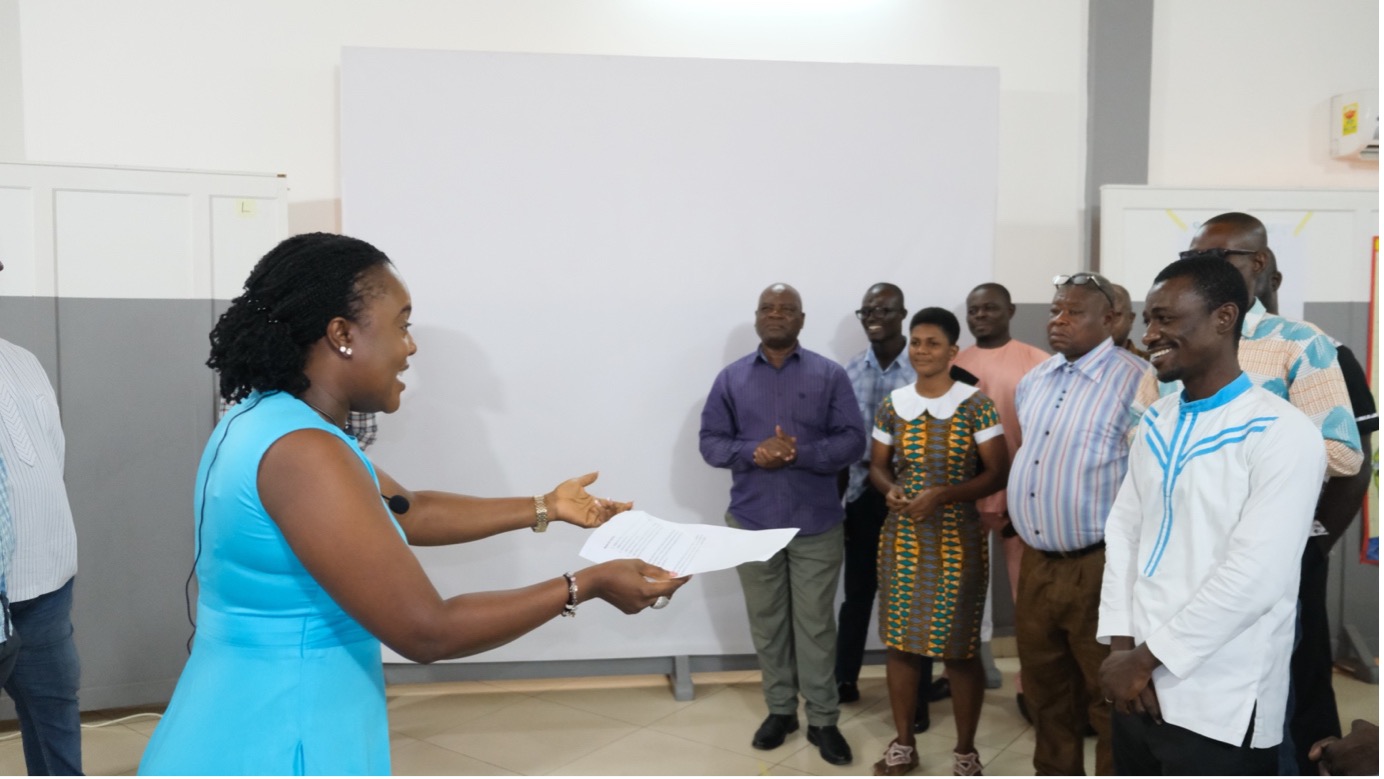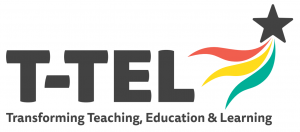
Group photo of participants after the training
Ghana Education Service (GES), with support from Transforming Teaching, Education and Learning (T-TEL) has recently organised a Communications Training workshop for communication focal persons from the three districts implementing the Communities of Excellence Programme (CEP)- Lambussie, Bosome Freho and Akuapem South districts.
The training, which took place at the T-TEL Office in Accra on 15th and 16th August, was aimed at empowering the teams so that they can develop robust communications plans and equipping them with effective and appropriate tools to communicate with stakeholders.
Ms Patty Assan, Director of Schools and Instructions at GES, urged the participants to continue communicating and raising awareness of the Communities of Excellence Programme and explore opportunities to highlight how the districts are working with all stakeholders to build adaptive learning ecosystems.
“To build adaptive learning ecosystems and actualize the change that we really want to see in our learners we have to ensure that our stakeholders continue to take an interest in our work and support it.” She further urged the districts to “continue sharing and reaching out to more people at the grassroots” to increase stakeholder interest and participation in the CEP.
Ms Patricia Adu-Twum, Team Leader for the CEP, noted that the districts have made considerable progress since the programme’s inception, saying that: “the districts have shown what works when it comes to collaborating with stakeholders in the community, particularly parents and traditional authorities, to ensure that learning outcomes in the districts are improved.” She emphasized that the district communicators have a shared responsibility of regularly updating stakeholders on progress made with implementation – they must be kept involved from the beginning to the end.
Mr. Akwasi Addae-Boahene, T-TEL’s Chief Technical Advisor, commended the districts for sustaining the interest of stakeholders and for forging long-term relationships through the series of stakeholder engagements that have taken place in the various districts.

Akwasi Addae-Boahene addressing participants during the workshop
He stated that the training was “absolutely essential for the districts to continue engaging and creating greater awareness of the programme among stakeholders.” He also mentioned that the districts should leverage the power of communication as a useful tool for mobilising stakeholders and coordinating effective community outreach. “We need people who will continue to advocate and mobilise stakeholders … we need you, the PROs, to be part of the district learning ecosystem.”

Participants during a session on mainstreaming gender and inclusion in communication
The two-day workshop trained participants on developing key messages, creating content, writing for impact, and undertaking gender-responsive communications. The session on gender-responsive communications sought to ensure that the programme’s communication strategies, tools and approaches are inclusive and “leaves no one behind”. At the end of the workshop, all three districts established online presence on Facebook and Twitter to supplement other communication channels for stakeholder engagement.
“The training workshop is timely because we are at a point in our districts where effective stakeholder engagement and support are key to ensuring the holistic wellbeing of learners. This training is very empowering, empowering in the sense that we are equipped to share our stories and communicate effectively with stakeholders at the community level and beyond. We also have Facebook and Twitter pages to support our communication activities. I am delighted that we were also trained on how to incorporate Gender Equality and Social Inclusion in our communication activities to ensure that no one is left behind,” says one of the district PROs.
– End –
The Communities of Excellence Programme seeks to ensure adaptive learning ecosystems are developed within districts and communities to provide all school-going children with the knowledge, skills, attitudes, tools and equitable opportunities to reach their full learning potential. The programme is led by Ghana Education Service facilitated by Transforming Teaching, Education and Learning (T-TEL) with funding from the Jacobs Foundation.
Read more here.
